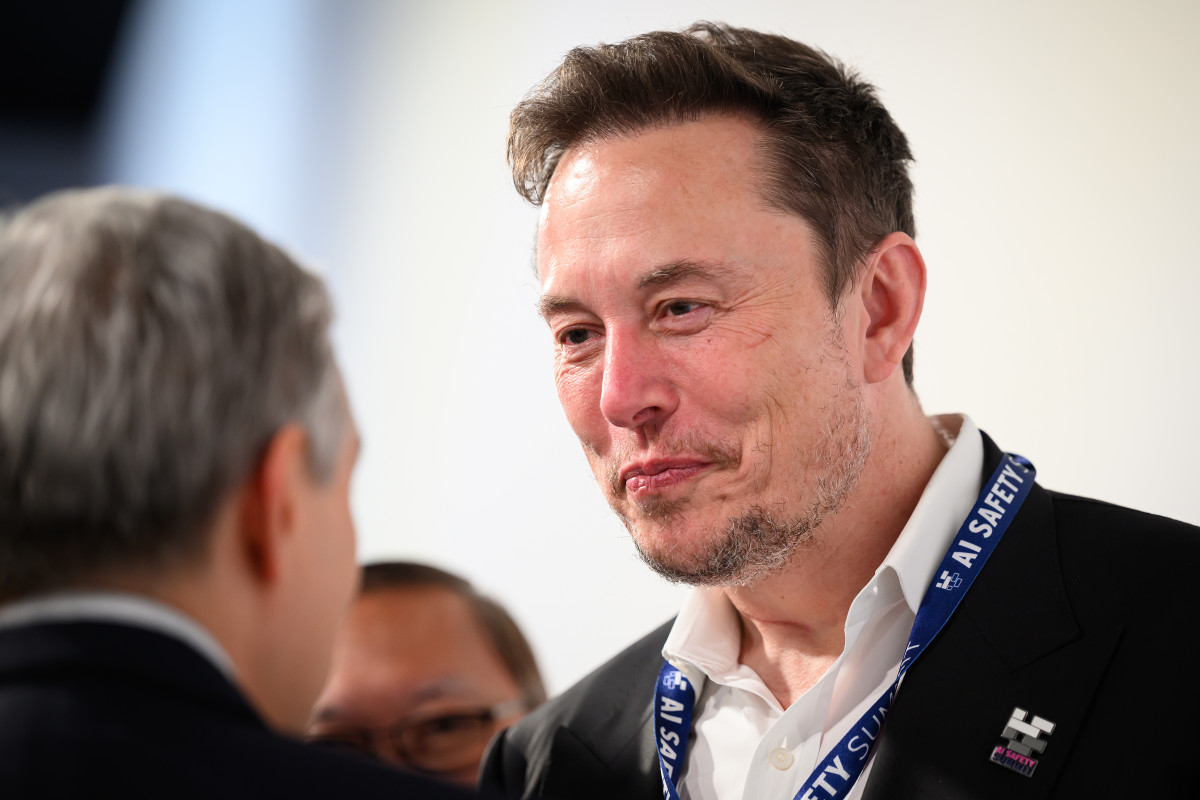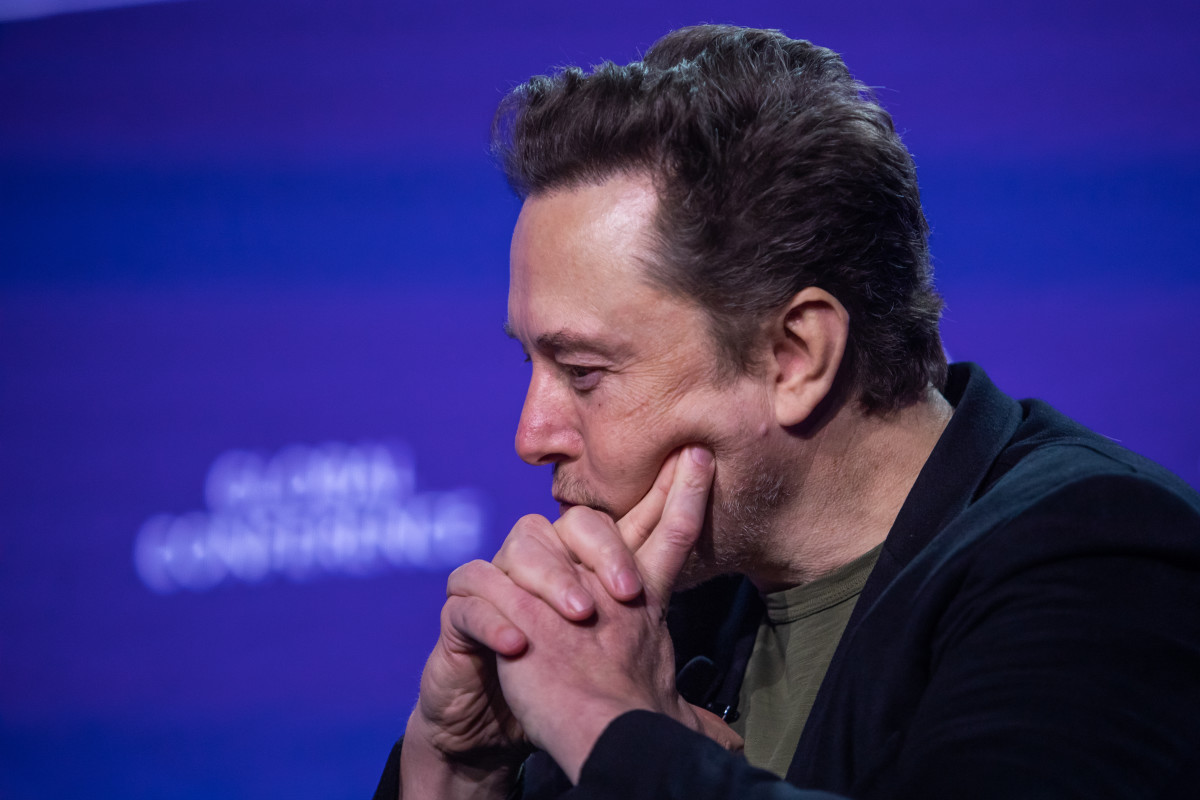
Tesla shares edged lower Tuesday, extending their year-to-date slump to around 28%, as investors continue to grapple with a key long-term risk tied to CEO Elon Musk's ambitions in AI technologies.
Tesla (TSLA) shares have shed nearly $230 billion in value this year as the electric-vehicle maker faces headwinds tied to fading EV demand, higher interest rates, supply chain disruptions and a dearth of new model launches.
A broader risk to the group's longer-term prospects has emerged this year as well, tied to the fortunes of a disputed $55.8 billion pay deal that Musk and the Tesla board negotiated in 2018.
Delaware Chancery Court Judge Kathaleen McCormick rejected the package last year, calling the package an "unfathomable sum." But Tesla continues to push for its approval in the courts, while Musk has moved to reincorporate the company in the friendlier regulatory confines of Texas.
Shareholders are set to vote on the package for a second time on June 13, as the board looks to buttress its Delaware appeal. But with the stock in a tailspin and Musk distracted by his myriad interests beyond Tesla, the chances of its receiving support are starting to dwindle.

Shareholder proxy service Glass Lewis in fact issued a report on May 26 urging shareholders to reject the proposal, citing its "excessive" size, dilutive effects on the share count, and the "slate of extraordinarily time-consuming projects" that continue to demand Musk's attention.
Musk to investors: Pay me or ... ?
Glass Lewis also advised shareholders to reject Musk's plans to incorporate Tesla in Texas, arguing it offers "uncertain benefits and additional risk."
The push on Musk's pay deal comes at a crucial time for the group as Tesla has tested investor patience with plans to switch focus from its traditional car-making roots to developing a fleet of autonomous robotaxis, which Musk has promised to unveil for the first time this summer.
Musk has long argued that Tesla's ultimate fate lies in the use of advanced artificial-intelligence technologies, which will power the group's self-driving software. And he has said he needs broader control of the group to make that happen.
Related: Tesla's big China problem may be spreading to Europe
"I am uncomfortable growing Tesla to be a leader in AI & robotics without having ~25% voting control," Musk said earlier this year. "Enough to be influential, but not so much that I can’t be overturned."
"Unless that is the case, I would prefer to build products outside of Tesla," he warned.
Musk currently owns around 13% of Tesla following a series of major share sales to fund the $44 billion purchase of the social media website X in 2022.
In a move that some consider a shot across the shareholder bow, Musk's artificial intelligence startup, xAI, said that it raised a fresh round of capital on May 26. The round was backed by the venture-capital investors Andreessen Horowitz and Sequoia Capital.
Join xAI if you believe in our mission of understanding the universe, which requires maximally rigorous pursuit of the truth, without regard to popularity or political correctness https://t.co/jWEGDDnVk1
— Elon Musk (@elonmusk) May 27, 2024
The $6 billion infusion, which came as part of a Series B funding round, could value xAI at as much as $24 billion and accelerate the group's push to challenge market leaders such as Open AI's ChatGPT.
Step into the DoJo with Musk
XAI isn't Musk's only foray into the AI world, however. Tesla has continued to develop the DoJo supercomputer as part of the group's effort to both finalize its self-driving ambitions and power its nascent robotaxi fleet.
"The way to think of Tesla is almost entirely in terms of solving autonomy and being able to turn on that autonomy for a gigantic fleet," Musk told investors in April. "And I think it might be the biggest asset-value-appreciation history when that day happens when you can do unsupervised full self-driving."
Morgan Stanley analyst Adam Jonas says DoJo could add more than $500 million to Tesla's market value while boosting the prospects of its full-self-driving system, its broader network and mobility services, as well as its battery, energy and insurance divisions.
More Tesla:
- Tesla tech beloved by investors has a big problem
- Elon Musk fired Tesla’s Supercharger team for a strange reason
- Amid new Biden rules, BYD launched plug-in hybrid pickup
Gene Munster, an analyst at Deepwater Asset Management and a longtime Tesla bull, says the licensing of self-driving technology could generate as much as $20 billion in annual revenue within five years of the first agreement.
Related: Tesla shares soar as Elon Musk returns from China with FSD 'Game Changer'
But a number of analysts say all those gains are tied to Musk's continued commitment to the group, and his ability to extract both cheaper capital and a fair compensation package. The weekend move to bring some of the former into xAI could test that thesis over the coming months.
Tesla shares were marked 3% lower in early Tuesday trading to change hands at $173.86 each.
Related: Single Best Trade: Wall Street veteran picks Palantir stock







